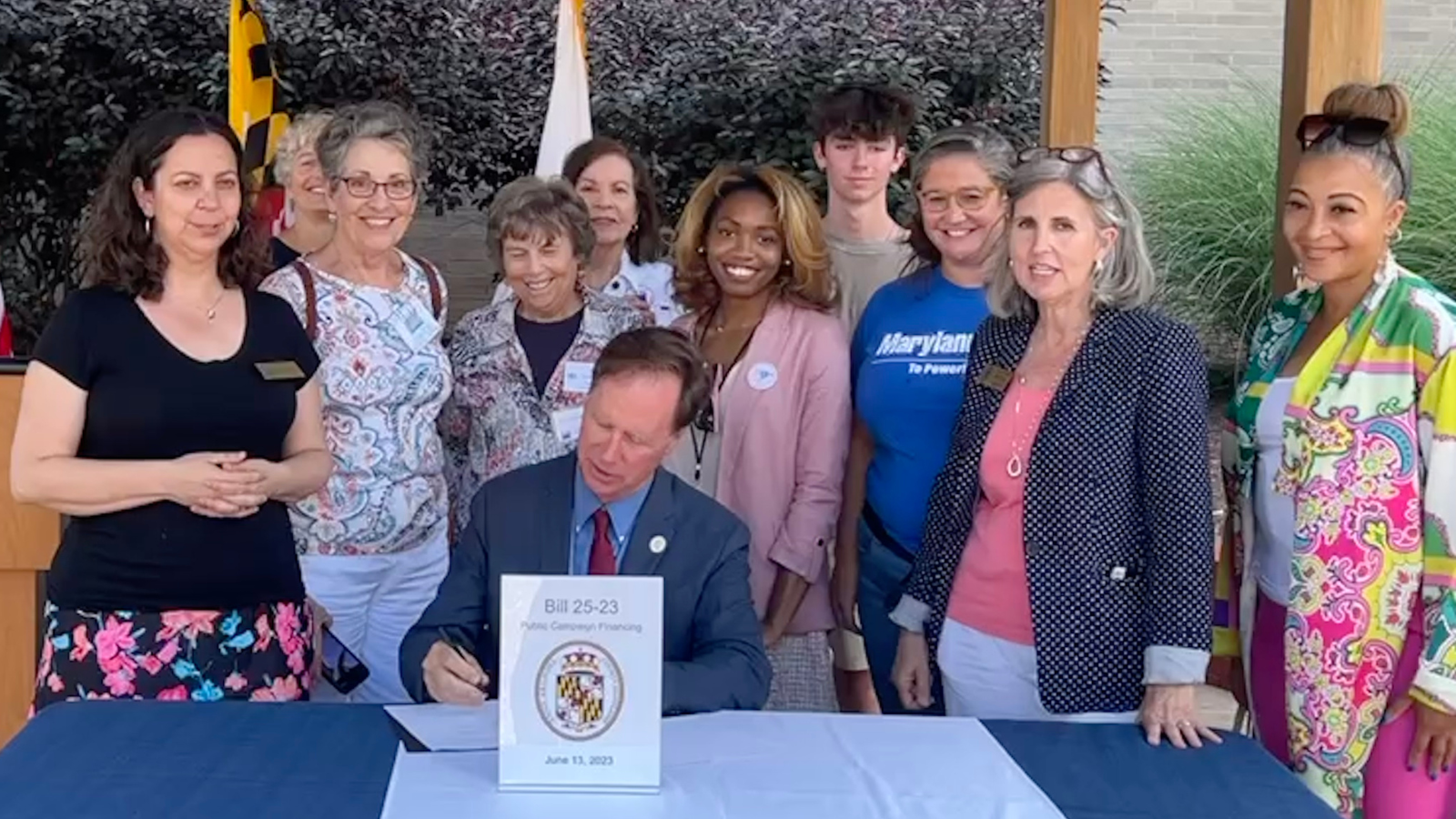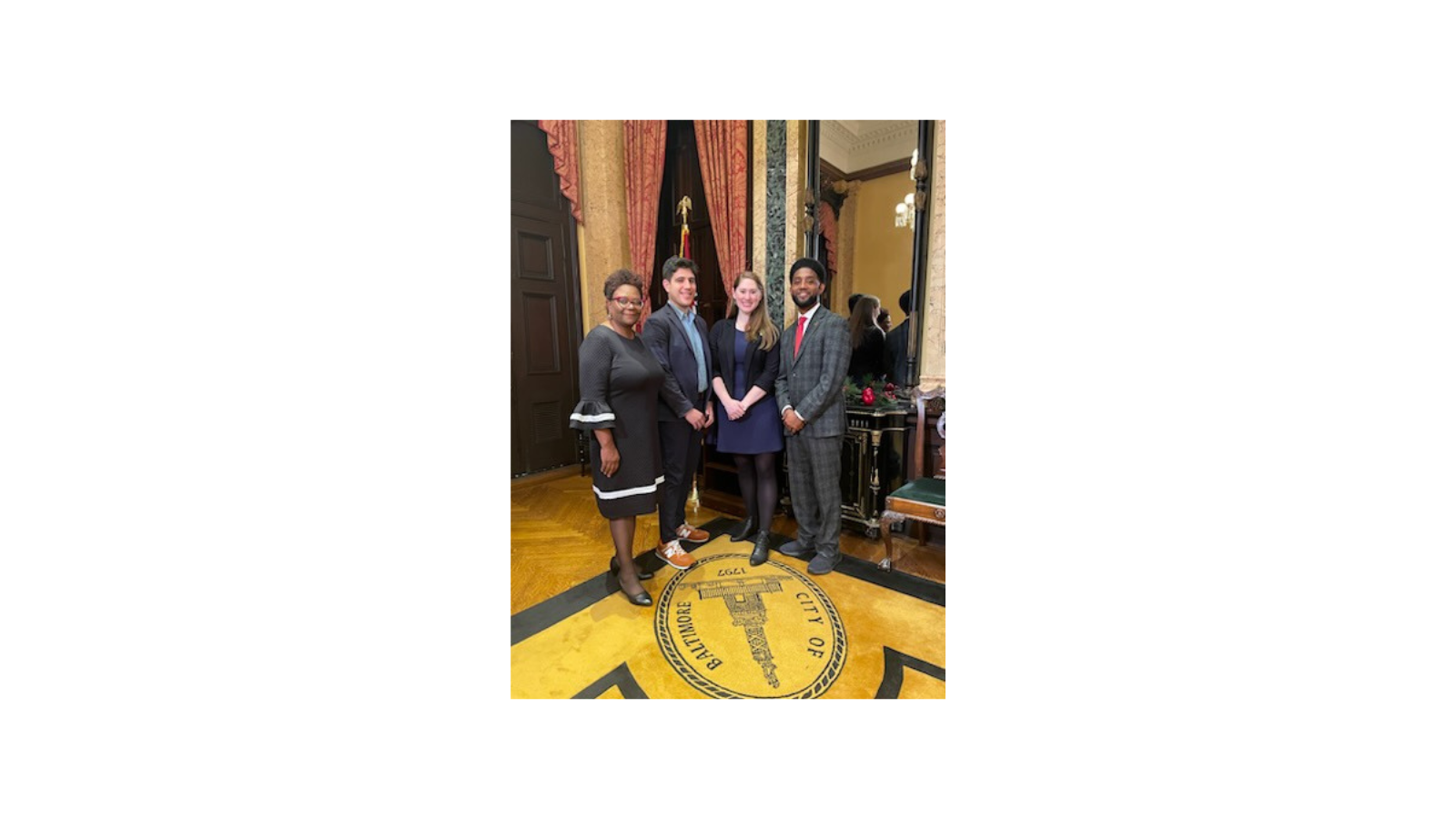
County Executive Allan Kittleman vetoes CB30 for citizen funded elections
We are deeply disappointed that County Executive Allan H. Kittleman has vetoed CB30. In November, the citizens of Howard County voted to pass Question A, an amendment to the County Charter creating the Citizens’ Election Fund and directing the County Council to finalize the program. We applaud the Council for responding with Council Bill 30 to finalize the program..
Sttement from Maryland PIRG and the Fair Elections Maryland Coalition:
We are deeply disappointed that County Executive Allan H. Kittleman has vetoed CB30. In November, the citizens of Howard County voted to pass Question A, an amendment to the County Charter creating the Citizens’ Election Fund and directing the County Council to finalize the program. We applaud the Council for responding with Council Bill 30 to finalize the program
The new program will be in effect for the 2022 election cycle. To qualify for the program candidates for County Council and County Executive must turn down contributions over $250, all contributions from corporations, unions and PACs, and meet thresholds for small donations to demonstrate viability. Once they qualify they can receive limited matching funds for small contributions from Howard County residents.
Marylanders from all political parties and backgrounds agree that big money has thrown our democracy way out of balance. A few wealthy donors, corporations, unions, and PACs have too much influence over who runs for office, who wins elections, and ultimately the public policies and budgets they produce, leaving our communities and families behind. The Citizens’ Election Fund is a common-sense and proven effective solution to shift power back to everyday people.
The program is funded in a similar way as the state’s public financing program, which Governor Hogan used for his successful race for Governor. Residents can make voluntary contributions to the program, and the County can supplement those donations with general funds through the budget process to ensure the program has the funding necessary to fulfill its mission, as Governor Hogan has done with the statewide program. Initial projections estimate that the program would be a fraction of a percent of the County’s $1.1 billion budget, It would cost less than $650,000 a year and less than $3 million in a 4 year cycle.
This is a critical investment Howard County can make in the health of our democracy. Howard County taxpayers pay for all the infrastructure we need to run government: voting machines, offices, poll workers, etc. And if we aren’t also paying for the elections themselves, special interests like developers will be happy to pick up the tab and we will be left with the consequences.
Through the use of limited public funds, we can bring balance back to the system so our government and hard-earned tax dollars work for ordinary people—not just the wealthy. That means our politicians will be more likely to stop giveaways that favor special interests so that we have more money to improve our schools, invest in infrastructure, and more.
And the program has numerous other benefits. It will expand opportunities to run for office to candidates who don’t have access to wealth or large donors, helping build a more representative and accountable government. It will encourage public participation in Howard County elections by encouraging candidates to seek our small donations. And it will lead the state and country in fixing our broken campaign finance system.
Howard County voters sent a powerful message when they passed Question A for the Citizens’ Election Fund, with more than 70,000 voters voting in favor. The County Council sent a powerful message by passing CB30 with a 4 to 1 vote, enough votes to override a veto. And County Executive Kittleman has sent his own powerful message by vetoing the bill.
Topics
Authors
Emily Scarr
State Director, Maryland PIRG; Director, Stop Toxic PFAS Campaign, PIRG
Emily directs strategy, organizational development, research, communications and legislative advocacy for Maryland PIRG. Emily has helped win small donor public financing in Baltimore City, Baltimore County, Howard County, Montgomery County, and Prince George's County. She has played a key role in establishing new state laws to to protect public health by restricting the use of antibiotics on Maryland farms, require testing for lead in school drinking water and restrict the use of toxic flame retardant and PFAS chemicals. Emily also serves on the Executive Committees of the Maryland Fair Elections Coalition and the Maryland Campaign to Keep Antibiotics Working. Emily lives in Baltimore City with her husband, kids, and dog.
Find Out More

Small donor public financing victory in Anne Arundel County

Anne Arundel County Considers Small Donor Public Financing

Mayor Scott swears in Fair Election Fund Commissioners
